Student-Led, Industry Approved: NextGen Live Gives Students Hands-On Experience in Event Management
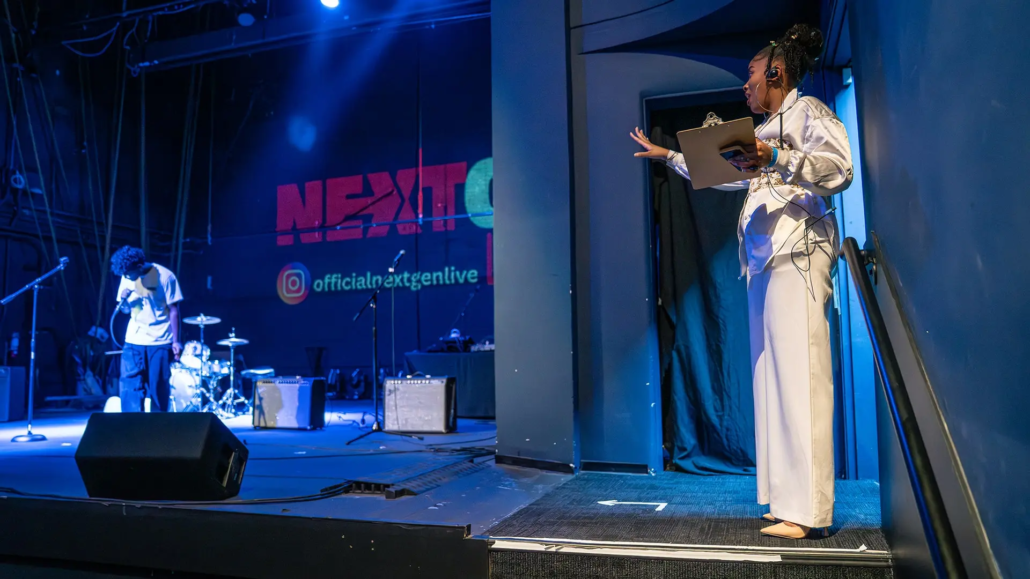
Whether it’s creating content, leading or working in tandem with an exceptional production team, or contributing to the Entertainment Industry in a unique way, each student at The Los Angeles Film School has their own set of goals that they want to achieve. However, each student shares a similar hurdle: finding relevant experience. Experience plays a critical role in landing your first gig and lets employers know that you know what you’re doing. And that’s where NextGen Live, a student-led live show, comes into play. Guided by LA Film School Entertainment Business Instructor Clayton Guiltner, NextGen Live offers students the opportunity to ideate, organize, and produce a live show under the parameters of industry-standard workflows and processes. Let’s take a deep dive into NextGen Live from Guiltner’s perspective and see what it means for the students running it.
Give us an overview of what NextGen Live is, and how it came about.
NextGen live is a live show organized and produced by students enrolled in our Event Management class. The event came about as a way to enhance our academic curriculum and give our students some real-world, hands-on experience in event planning and management.
What’s your role in the production process, and how do you balance guiding students with letting them take the lead?
My role as instructor is to guide our students through the professional approach to event planning according to current industry standards and trends. I lay out the structure of the month and give the students parameters to work within, but once they are assigned roles and given instruction, I move more into a supervising producer role. This allows the students the opportunity to lead in their assigned area and gain problem-solving skills along the way. In our business we have systems, language, and structures in place in which we operate within to execute an event.
It is crucial that our students are being taught these skills and then given an opportunity to apply them. We don’t just hand them the keys to the theater and say “go make a show.” We give them the tools and knowledge they need along the way to execute a professional show. If students have the right tools in their tool belt, they are ready to take the lead. That’s our aim for this course.
Could you explain the process for finding and selecting the acts? How do the students identify and book the artists?
Artists are recruited through a “casting notice” and invited to sign up for an audition time slot. Each artist is given a 5 to 10 minute time slot to audition for our student producers live in the theatre. After auditions, our students discuss and vote on their top choices. We run our auditions in a professional way and our producers are instructed on how to interact with the artists at auditions, how to take meaningful producer notes, and how to argue for their choices in the most effective way. After the artists are chosen, the Artist Liaison team takes the lead to reach out to the artist and get them scheduled for rehearsals and show preparation.
Could you walk us through the key phases of production students must master to bring NextGen Live to life? What does that process look like, from talent booking and promotion to the final stages of technical production?
It’s always a race to the finish line since this course happens in a span of 4 weeks. The students begin as a group of show producers identifying key elements of the target audience diving deep into research of demographics and psychographics. This data, compiled by the students, is then used to devise a theme and direction for the show itself through a series of group ideation sessions guided by industry parameters and techniques in collaboration. Next, and right away, we hold about 7 to 8 hours of auditions to find our artists. Then, we move into production during the last two weeks. It is at that time that students are divided into teams and each given tasks in marketing, sponsorship recruitment, audio and lighting design, and artist management tasks. Finally, during our show week, we conduct a thorough dress rehearsal the week of the show. This is the night where everything comes together and problems are solved. By the end of that rehearsal, we are ready to launch the show on our last night of class.
Who takes on the leadership roles, and how do they coordinate all the moving parts – from production to lighting to make the event a reality?
Generally, I identify team leaders during the first week and assign a student lead producer, acting as show director, who will oversee all of the teams and the entire show. Also, team leaders are identified and assigned in all other areas. Students don’t have to come in with experience to lead, but they must show initiative and have strong skills in communication and have a good rapport with their peers. There is a lot of communication that happens throughout the week outside of class amongst the teams and the lead producer. It’s common to have group texts and group LMS messaging happening all throughout the week as details are worked out.
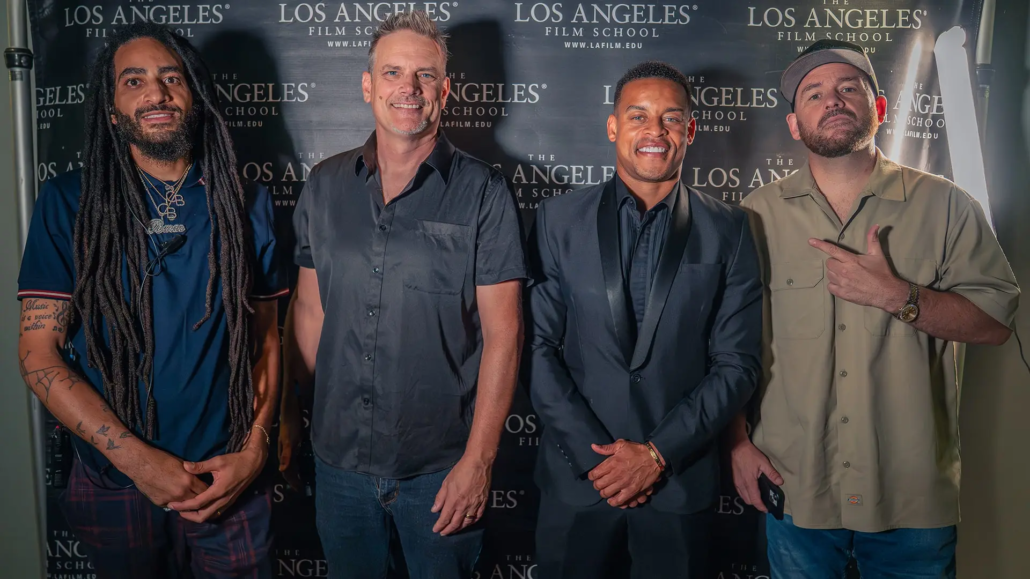
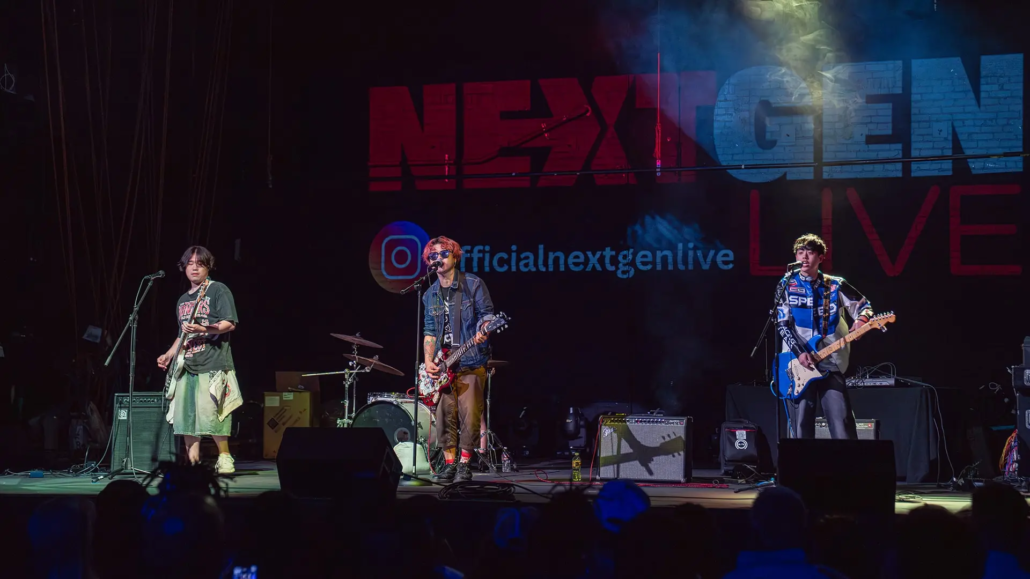
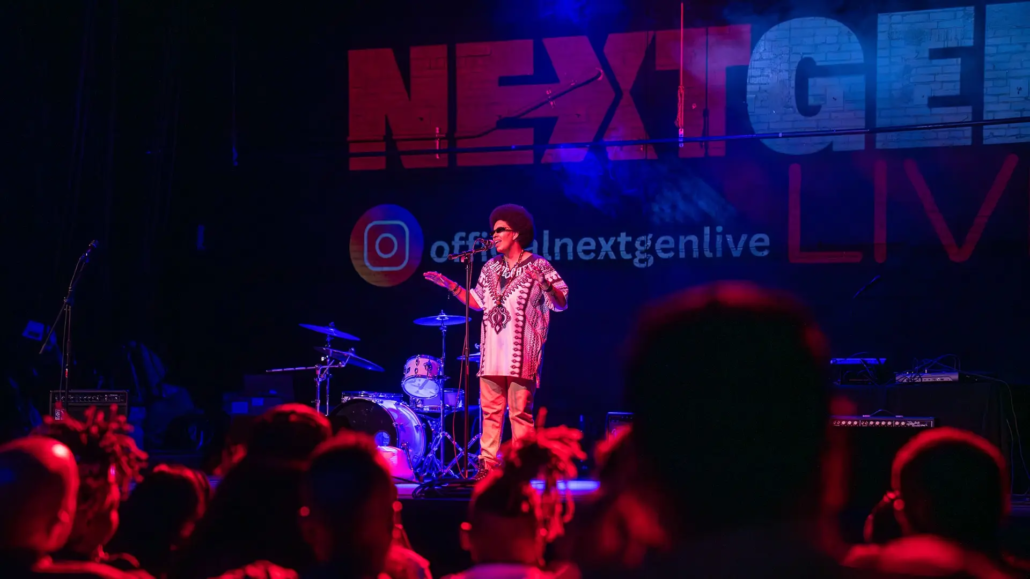
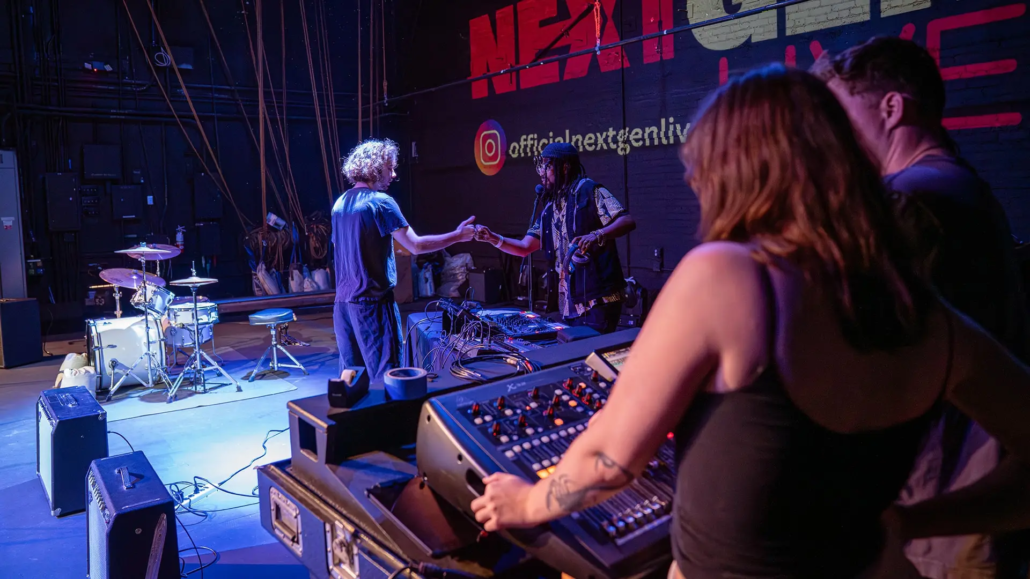
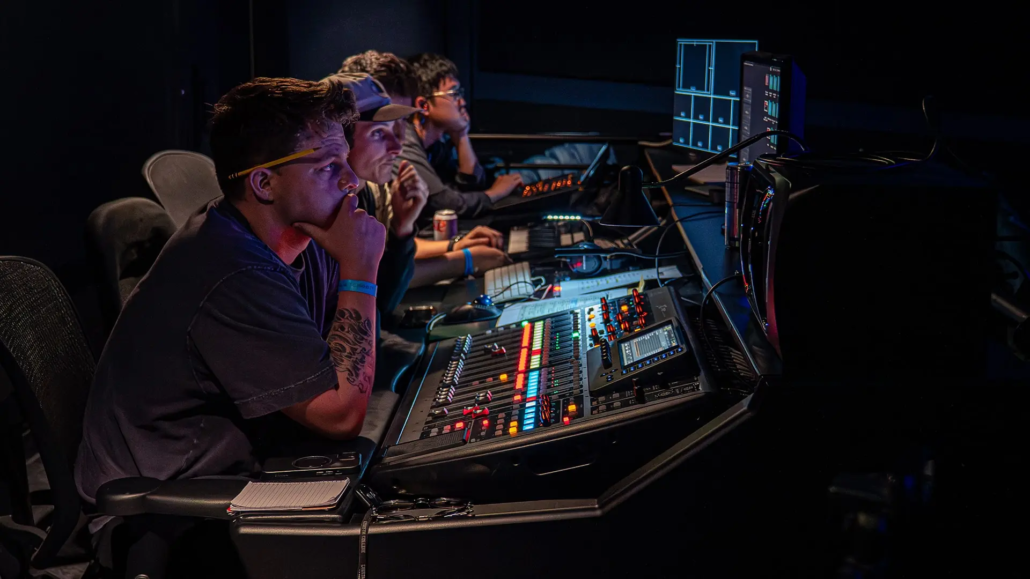
What are some of the biggest challenges the students face, and how do they overcome them?
Time is our biggest enemy and students often experience the stress of show production on shoestring budgets and tight, non-negotiable deadlines in order to pull off the show. We overcome these obstacles with strong planning and clear communication. Other issues arise naturally in a live entertainment environment with technical difficulties, artist issues, and many more surprises along the way. These are all very valuable to our students and present the best opportunities for learning.
What’s the most valuable lesson students learn from producing a live show like this?
No show can happen without working as a cohesive team and our students get to experience the challenges and triumphs of working together to make something great. At the end of each week, students are required to complete a summary report by answering a series of questions about what lessons they’ve learned. This is almost like a journal for students to reflect back upon the week’s work citing triumphs and frustrations. Self-reflection becomes a great way for students to assess their progress and learn.
What kind of feedback do you typically get from industry professionals who attend the show?
Industry professionals have been impressed with the artists and their performances and have been a huge encouragement to our students as they observe them hustling to run the show. Once we explain how quickly the show is planned and put together, many industry professionals are in disbelief that we are able to pull off a show that runs smoothly and looks to be a professional event. Industry professionals have commented on the fact that this type of class is crucial to students entering into the industry as hands-on work is the key to mastery.
Do you think this experience will help students stand out to potential employers?
In four weeks, students are able to work hard and walk away with material for their resume and portfolio. This is an actual live show in one of the most famous entertainment cities in the world and the students dreamed it, planned it, and executed it with precision. Video, photos, digital assets, recordings, and documents can be organized and shown to potential employers. This gives our students a competitive edge that helps them stand out since many students don’t have the level of involvement in a production of this type.
What’s the most rewarding part of seeing your students produce a successful show?
The most rewarding and equally inspiring part of this process for me as an instructor is seeing a student on day one of the class not fully understanding what is involved in event planning to seeing them on the final moments of the show and seeing their growth and experience skyrocket in just a few weeks. As instructors we don’t always get to see such a tangible display of a student’s growth and this curriculum affords that unique opportunity and there’s nothing more rewarding.
How do you think NextGen Live will evolve in its future, and how do you think participating students will shape it?
It’s important in real-world entertainment productions to keep our finger on the pulse of industry trends, music tastes, technology, as well as marketing and branding strategies. These evolve naturally and if we are applying our week one research correctly, we should be able to maintain a relevant and effective NextGen Live no matter what is happening in the entertainment world.
The Los Angeles Film School prides itself on its immersive, hands-on approach to education, and NextGen Live is a project that embodies that sentiment. Students involved in the show’s coordination not only leave with developed skills in teamwork, leadership, time management, event coordination and planning, but an incredible addition to their professional portfolio. As NextGen Live evolves, so does the opportunity for students to implement their acquired knowledge and combine it with their creativity to produce a truly unique show.
Want to check out NextGen Live for yourself? Look out for upcoming show dates in the newsletter or visit our Events Calendar.
Interested in learning about the business side of the entertainment industry? Explore our Entertainment Business programs.
